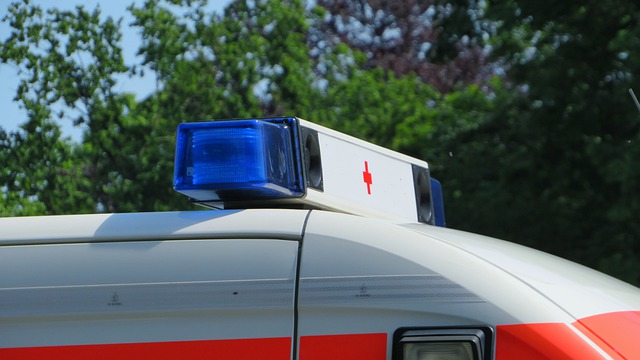
-
The Maritime Industry Authority directed domestic shipping operators to ensure their ships prioritize ambulances and other medical service vehicles during loading and unloading
-
MARINA said it received a report of delays and difficulties encountered by ambulances or other medical service vehicles transporting patients and medical supplies during ship embarkation
-
The priority should also be extended to passengers onboard the ambulance or other medical service vehicle, including the driver, patient, and medical staff
Domestic shipping operators must give priority to ambulances and other medical service vehicles during vessel loading and unloading, the Maritime Industry Authority (MARINA) said.
In MARINA Advisory (MA) No. 2021-73, the agency said it received a report of delays and difficulties encountered by ambulances or other medical service vehicles transporting patient and medical supply when they were embarking on ships.
MARINA noted that prioritizing an ambulance engaged in emergency response has long been a statutory consideration in the transportation sector, as reflected by a provision exempting them from the rule on right of way in road traffic under Republic Act No. 4136, or the Land Transportation and Traffic Code.
MARINA directed domestic shipping operators to strictly comply and prioritize loading/embarkation on ships, and unloading from there, of land ambulances and other medical service vehicles engaged in emergency response.
The priority should also be extended to passengers onboard the ambulance or other medical service vehicle, including the driver, patient, and medical staff.
Other medical service vehicles include patient transport vehicles, or other vehicles not equipped according to Department of Health (DOH) guidelines but are used to transport sick or injured individuals, as endorsed or certified by a medical practitioner or used for the urgent and exclusive transport of medical equipment, medicines, vaccines, or any other medical supplies as endorsed by a hospital or medical practitioner.
If the ambulance or medical service vehicle carries patients with contagious or communicable diseases, the passengers should remain inside the vehicle throughout the voyage and follow applicable health protocols/guidelines of the Inter-agency Task Force for the Management of Emerging Infectious Diseases and DOH.
Without compromising the safety and stability of the ship, if the ship has reached its maximum load capacity and a land ambulance or other medical service vehicle arrives, the chief officer or any authorized duty officer of the ship should offload/disembark a vehicle to give priority to the ambulance or medical service vehicle.
The ship operator should also inform/notify in advance or at the point of sale of the ticket the vehicle owners/passengers that their vehicles may be offloaded/disembarked to prioritize ambulances or other medical service vehicles.
The offloaded/disembarked vehicle and its passenger/s should be given priority in boarding the next available ship of the same operator. The ticket refund/revalidation and other available remedies under the Passenger Bill of Rights should be applied to the vehicles and its passengers which were offloaded/disembarked.
Enforcement units from MARINA, Philippine Coast Guard, Philippine Ports Authority, Cebu Port Authority, and other enforcement agencies were enjoined to implement MA 2021-73.




